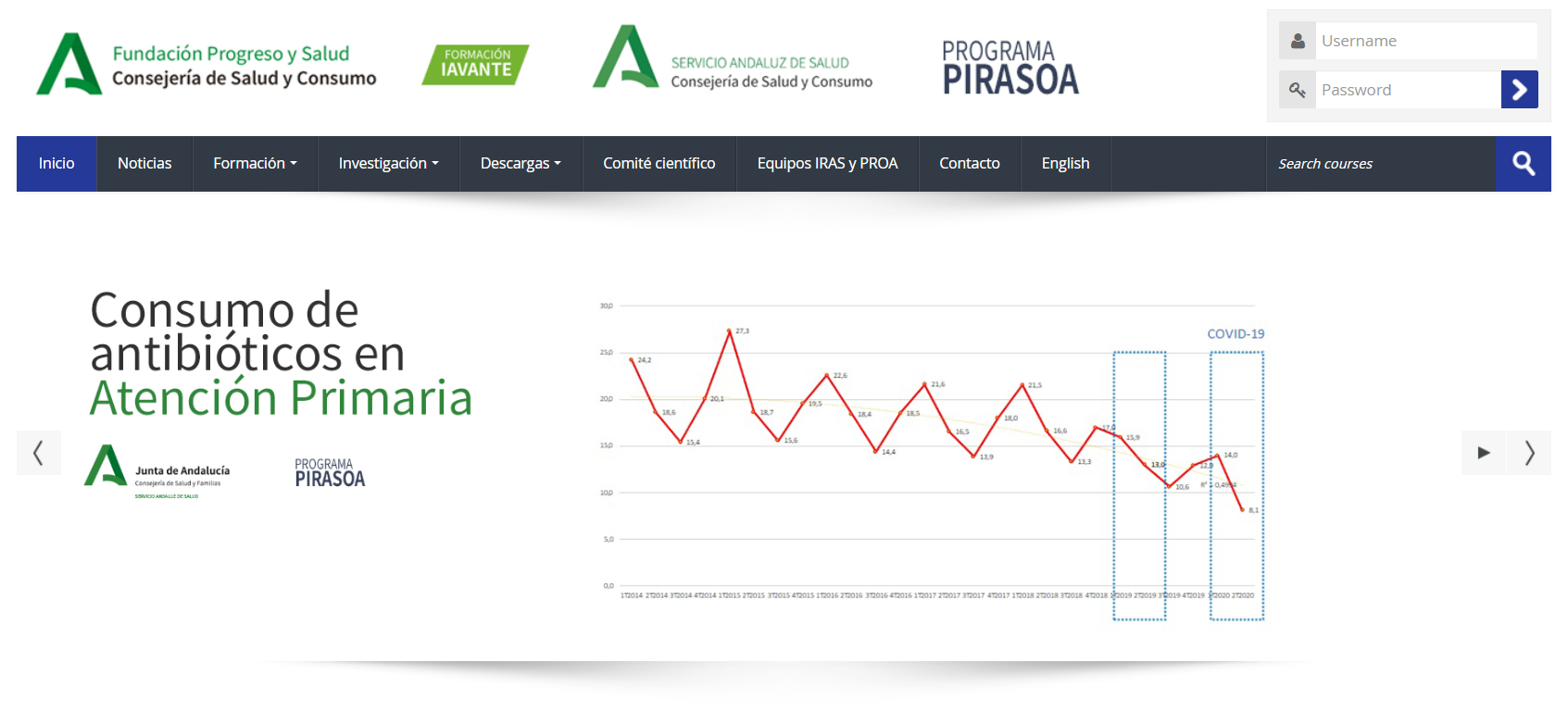Welcome to the first AMR EDUCare newsletter
May, 2023
The project’s kick-off meeting in Brussels
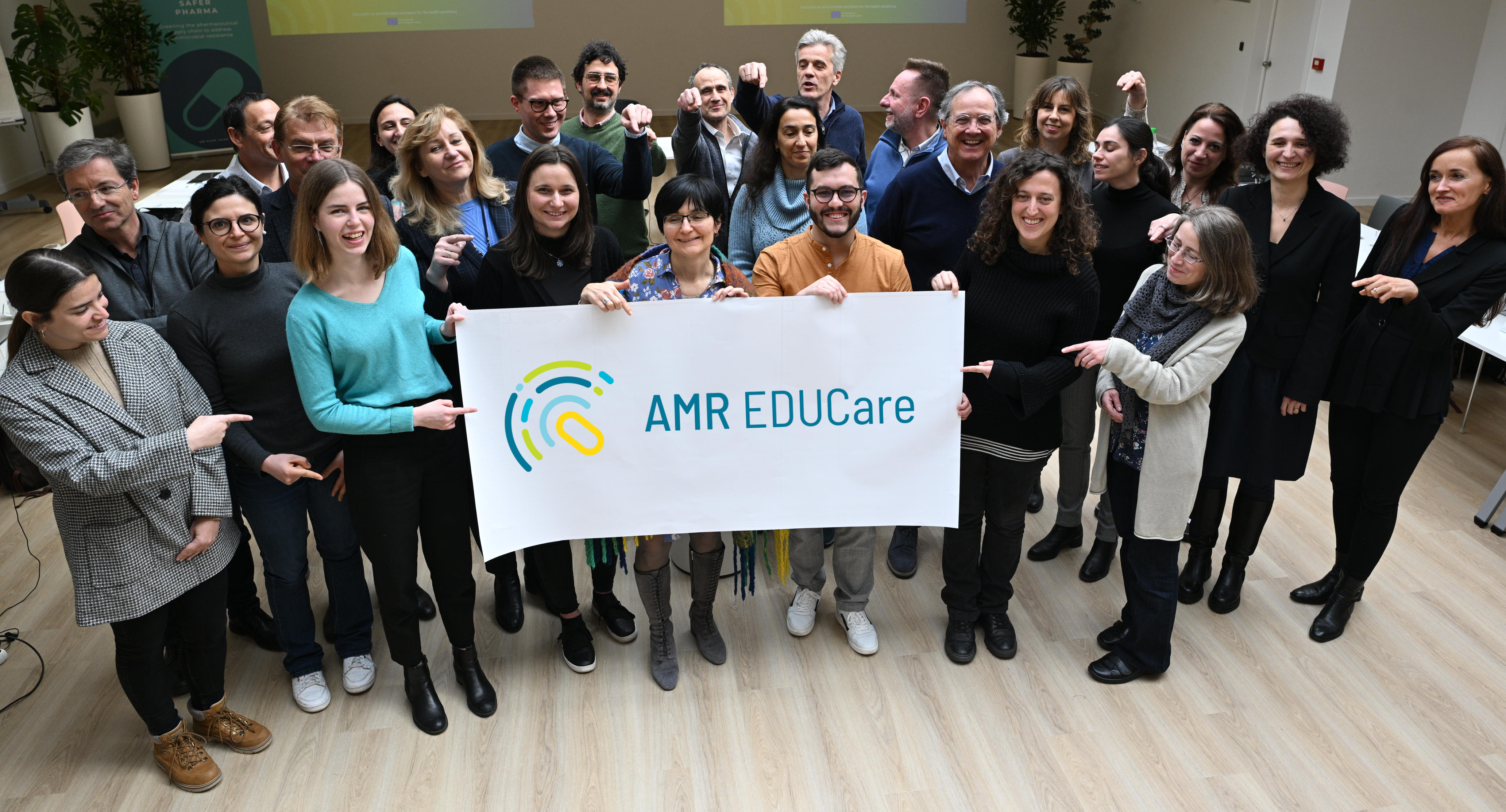
The AMR EDUCare project held its kickoff meeting in Brussels on 20-21 May 2023 to discuss the work plan’s implementation steps and coordination.
In the opening remarks, Katarzyna Ptak, representing DG SANTE, emphasized the strategic importance of AMR education and training for healthcare professionals.
Klaudie Faltysova from HaDEa presented a comprehensive overview of the project implementation requirements and suggestions. She highlighted the project’s goal to train over 4,000 healthcare professionals in six countries: Spain, Portugal, Italy, Greece, Hungary, and Lithuania.
To ensure the smooth running of the project, HCWH Europe will be responsible for project management. The project will also benefit from the support of an advisory board and working groups.
The Advisory Board will include member state health authorities and academic institutions. Their work will help to develop the “In-depth report on the state of the art of AMR training in target countries”.
The working groups will consist of medical doctors, pharmacists, health management professionals, and nurses, as well as individual professionals and members of national professional associations. They will provide input on the content and methodology of the training.
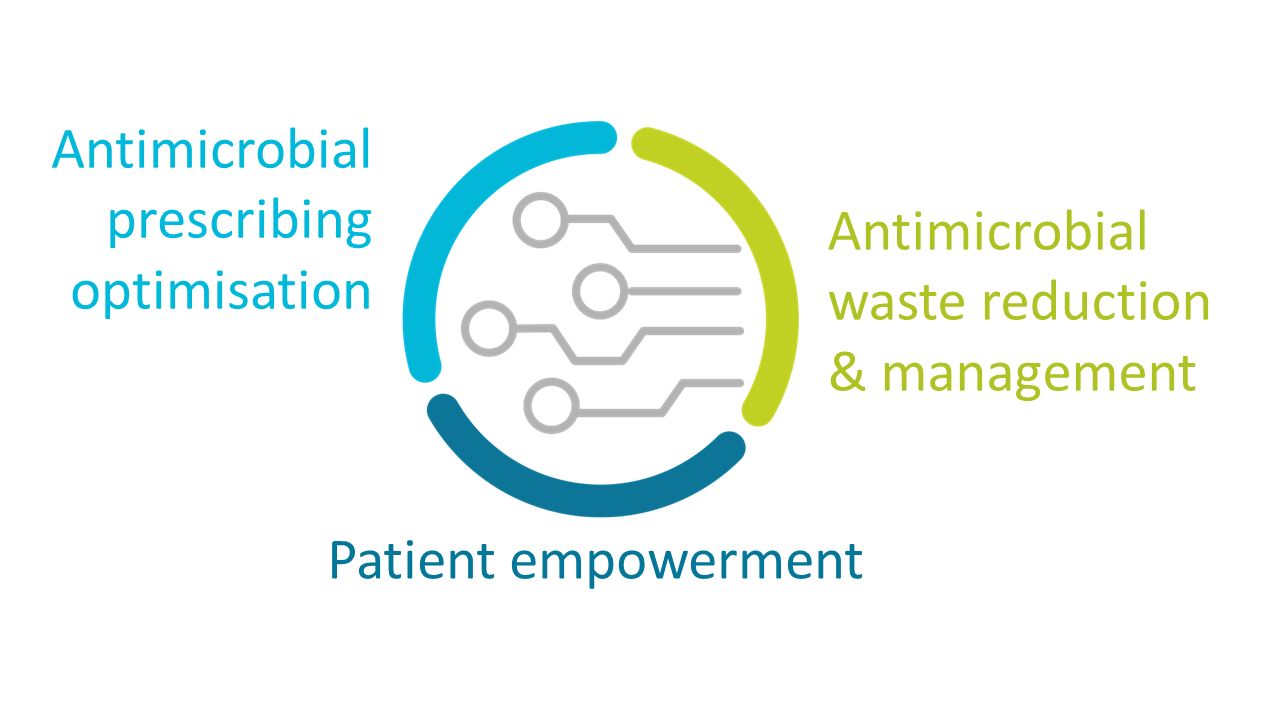
The training will consist of three main modules and a cross-cutting component.
The three courses will cover antimicrobial prescribing optimisation, antimicrobial waste management, and patient empowerment.
The cross-cutting component will focus on digital skills and behavioural change, which are essential for improving AMR prevention and control practices.
These training materials will be publicly available for any interested health professional on an online digital education platform as MOOC (Massive Open Online Course).
The project’s roadmap
The journey begins with identifying health professionals’ learning needs and skill gaps through consultations with health professionals participating in the Working Groups. This will ensure that the training content is explicitely tailored to the needs of the health workforce.
A comprehensive guide for course developers will be also developed to ensure consistency and quality; it could also be a reference tool for future course development.
Based on this methodological guide, the design and development of the training materials will be launched. The modules of the three courses will include video lectures, reading suggestions, learning surveys, and assignments to provide a comprehensive learning experience for health management professionals.
A ‘train the trainers’ session for academic partners’ staff will be organized in June 2024 to ensure the long-term use and sustainability of the training modules. This session in Sevilla will equip academic partners with the in-house knowledge and skills to deliver all modules developed by the project. Based on the feedback received, the training modules will be finalized to ensure they meet the needs of the health management professionals.
The training delivery will take place in two forms: 1) The courses will be available as online, self-paced courses in English and the languages of the participating six countries on an online educational platform, 2) Based on the contents of the original online courses, academic partners will develop and deliver CPD or micro-credential courses reflecting the specific training needs of the six countries represented in the project.
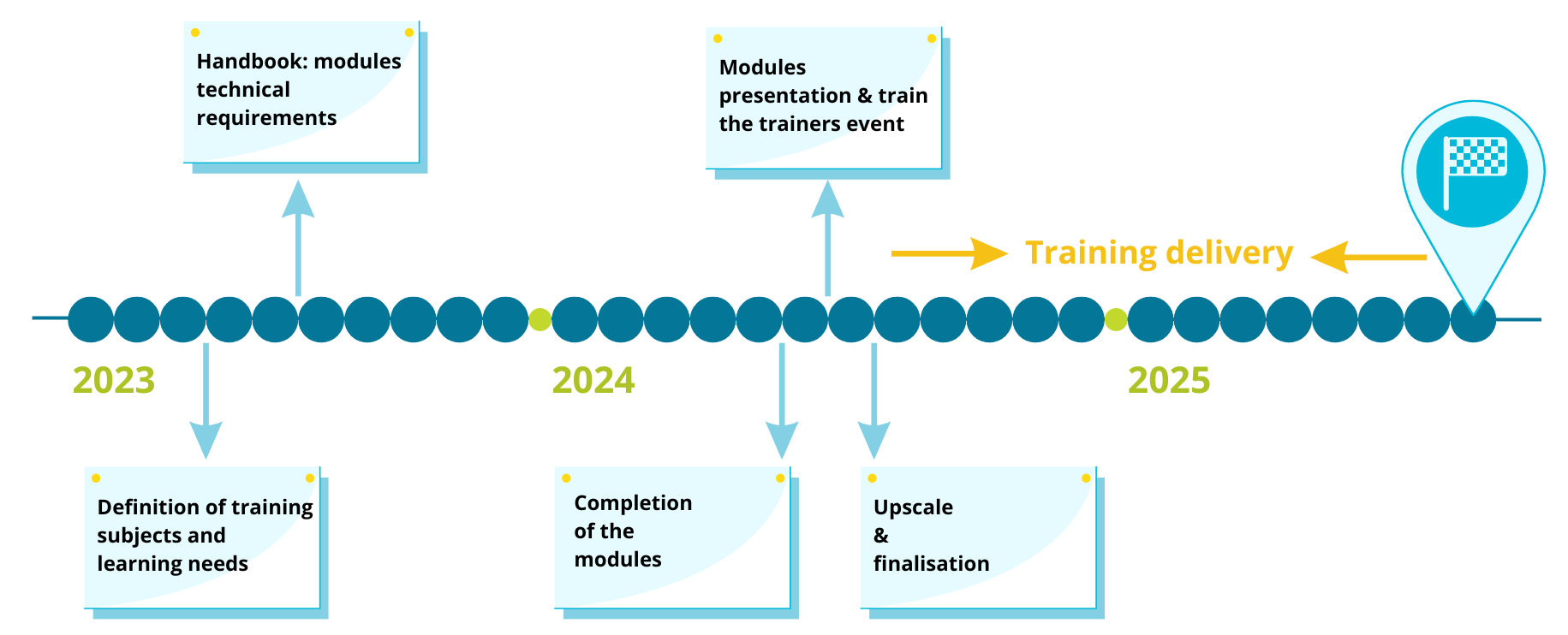
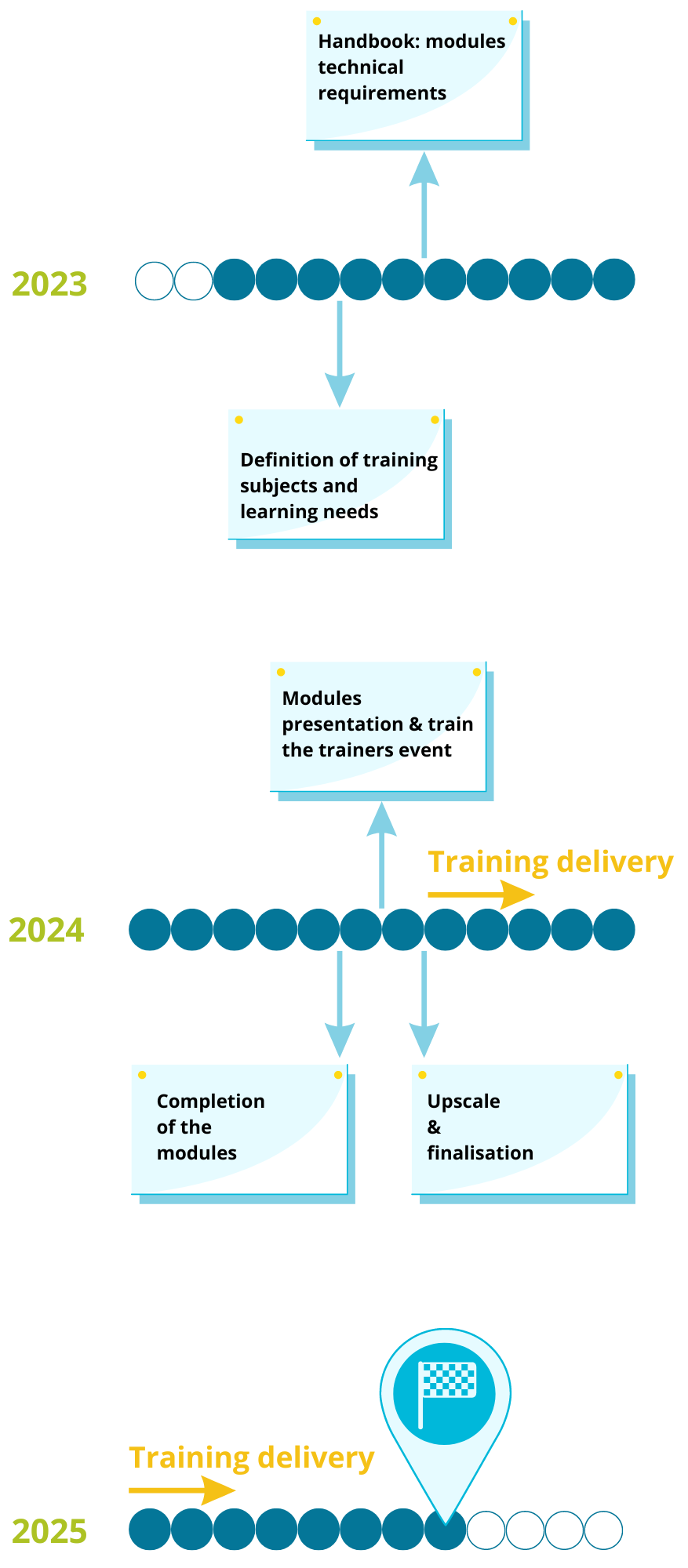
Building up on successful initiatives: the PIRASOA project
The PIRASOA programme was a healthcare initiative focused on preventing and controlling healthcare-associated infections (HAIs) and in improving the use of antimicrobial agents, in the Andalusia region of Spain, with a population of 8.4 million inhabitants. The program aimed to improve patient safety and quality of care in healthcare settings.
This education-based multifaceted programme was divided into two sub-programmes integrated into daily clinical practice: the HAIs sub-programme, aimed at hospitals, and the antimicrobial stewardship (ASP) sub-programme, applied to both hospitals and primary care.
The programme started on 1 January 2014 and has been implemented in all public centres of Andalusia.
The programme’s overall objectives were: 1) to reduce the incidence of HAIs and 2) to optimize the use of antimicrobials, both until reaching similar levels to those European countries with better indicators in the entire Andalusian Public Healthcare System (SSPA).
The main features of the programme were:
- the scope of action was the SSPA, including both hospital and primary care setting
- integrating the ASP and HAI subprogrammes in hospital settings and ASP in primary care
- it was based on professional leadership and on the scientific knowledge of the most involved specialities in the prevention, diagnosis and treatment of infections
- it was carried out by a multidisciplinary team which worked concertedly to achieve the programme goals
- these teams were coordinated by the medical director of each healthcare centre within the frame of the hospitals Antimicrobial and Infections Committees
- education was the key tool of the programme
- the outcomes were measurable and accessible, with clinical and efficiency objectives
An online platform was set up to facilitate programme training, monitoring and assessment: www.pirasoa.iavante.es
It was the primary communication tool between the local teams and the Scientific Committee. Training of the local teams was conducted through training courses and annual face-to-face sessions. Training modules were structured as MOOC (Massive Online Open Courses) that reached many participants.
A total of 12 training courses with MOOC methodology have been conducted: two initial courses specially designed for the formation of local teams, with two modules corresponding to the different settings of the PIRASOA programme (primary care and hospital, including HAIs and ASP)(554 trained professionals), one course on the appropriate use of antimicrobials for the most frequent infectious diseases syndromes and six editions of a course ont he proper use of antimicrobials in the hospital settings (4605 trained professionals), two editions of a course on HAIs (1440 trained professionals) and one-course ont he optimization of the use of antimicrobials from a community pharmacy (433 trained professionals).
(Source: http://pr-journal.s3.amazonaws.com/4gr2rme.pdf)
Concerning the impact of the PIRASOA programme, please read the articles below; we highlight here one of them: Optimize Antibiotic Treatments in Nursing Homes. The total mean antimicrobial consumption decreased by 31.2% with respect to the preintervention period; the overall use of quinolones and amoxicillin–clavulanic acid dropped by 52.2% and 42.5%, respectively; and the overall prevalence of multidrug-resistant organisms decreased from 24.7% to 17.4%.
References
Thank you for staying with us,
Best wishes from the communications team:

Szilvia Farkas

Albert Aszalos

Szilvia Farkas

Albert Aszalos
Subscribe to our newsletter to stay informed about course development and availability

Funded by the European Union. Views and opinions expressed are however those of the author(s) only and do not necessarily reflect those of the European Union or the Health and Digital Executive Agency (HaDEA). Neither the European Union nor the granting authority can be held responsible for them.

